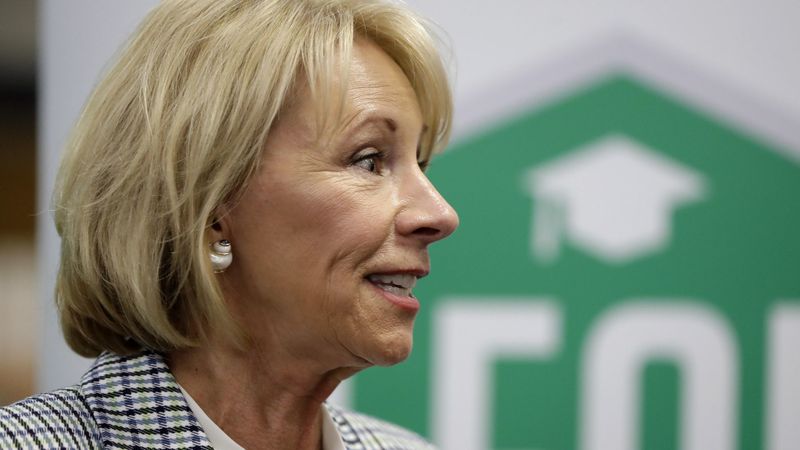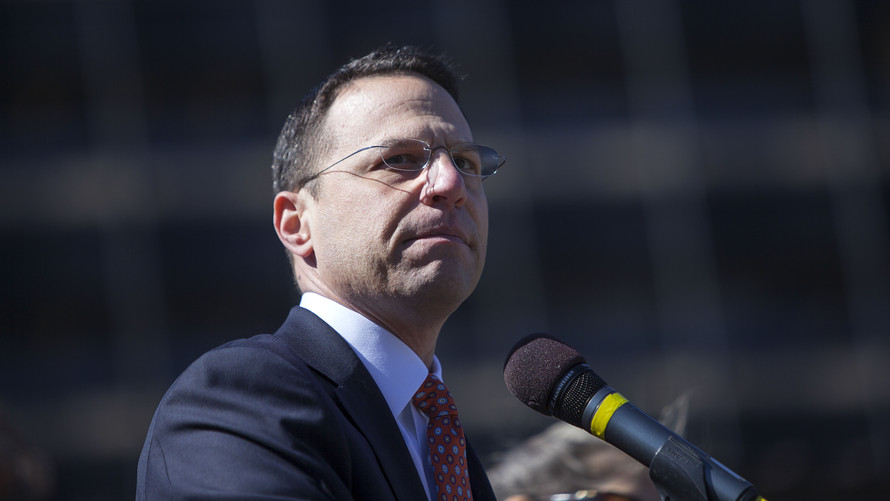Originally posted on marketwatch.com Jan 8, 2019.

The Department of Education is fully funded, so it should be (mostly) business as usual for borrowers and students
Student loans and financial aid remain largely unaffected by the shutdown.
Despite the partial government shutdown, it should (mostly) be business as usual for students relying on federal student loans to afford college and borrowers repaying them.
The Department of Education remains fully funded, which means its contractors are still collecting student loan payments and the agency is still dispersing grants and federal student loans. Still, students, borrowers and schools may experience some hiccups for tasks that require information from another agency experiencing greater impacts from the shutdown, like the IRS.
“It’s the other departments that are running into some issues,” said Mark Kantrowitz, the publisher of savingforcollege.com and a financial aid expert.
Here’s what you need to know:
Borrowers repaying their student loans
Perhaps the most important thing that borrowers who are repaying their student loans should know is that the shutdown doesn’t affect their student loan bills.
Borrowers “should be operating as if everything is normal and there is no disruption at all,” said Justin Draeger, the president of the National Association of Financial Aid Administrators, a professional association for financial aid officers. In other words: “Don’t stop paying your loans,” he says.
Still, the shutdown could impact some borrowers trying to manage their debt. Borrowers who want to take advantage of the government’s income-driven repayment plans, which allow them to pay off their debt as a percentage of their income, need to show proof of income to their student loan servicer. They also need to recertify their income every year to stay on the plans.
The IRS, which has had many of its duties curtailed due to the shutdown, typically plays a role in both cases. Usually, borrowers will use the IRS data retrieval tool, which electronically transfers tax information into their income driven repayment plan application. Department of Education officials say the tool is operating as normal. The IRS did not respond immediately to a request for comment.
Borrowers applying for an income-driven repayment plan or re-certifying their income for an IDR plan should try to use the data retrieval tool, Kantrowitz said. If for some reason, they hit a snag — the tools don’t always run perfectly, he noted — under normal circumstances a borrower would download their tax transcript from the IRS and file a paper application.
But the tax transcript service is currently down. Officials at the Department of Education and the IRS told Politico the outage isn’t due to the shutdown and they expect the tool to be back up on January 14. In the meantime, while the shutdown persists, borrowers trying to get their tax information will likely struggle to find someone to take their calls at the IRS, Kantrowitz said.
Borrowers whose circumstances have changed since they last filed their tax return — information that won’t be reflected in the data retrieval tool — can use other documentation to prove their income, like pay stubs or a letter from their employer. But because those documents typically show net income and not gross income — which is available through tax documents and on which the calculation for income-driven repayment plans are usually based — borrowers’ loan payments could wind up being higher, Kantrowitz said.
Students applying for and receiving aid
The lack of availability of tax transcripts is also causing a snag for some students applying for aid, experts say. Roughly 30% of students who fill out the Free Application for Federal Student Aid, or FAFSA, are flagged for verification each year, a process that requires them to prove their income. Typically these students use a tax transcript to verify their income.
“Basically there’s a big bottleneck in the process at this point,” said David Baime, the senior vice president for government relations and policy analysis at the American Association of Community Colleges.
Baime said his organization has heard from its member schools “with great concern” about students unable to complete their FAFSA due to the tax transcript issue. Unfortunately, this issue is likely affecting students who need the funds the most — college officials say they observe that low-income students are more likely to be flagged for verification.
“The bottom line is that our colleges — and their students more importantly — are really in many places in a very difficult situation in terms of financing,” Baime said.
Again, the agencies say this delay isn’t related to the government shutdown, but is the result of scheduled maintenance.
Students who find themselves in this situation should contact the schools they’re working with to find out what they need to submit and when they need to submit it, Draeger said. In some cases, colleges are working with students to allow them to start the semester in the absence of financing until the issues are resolved, Baime said.
Questions on the FAFSA that require interactions with other agencies are also causing hiccups for some students and schools. In order to qualify for federal financial aid, male students need to register for the draft. The FAFSA typically performs a database match with the Selective Service Administration to make sure required students have registered, but right now that match is failing, Draeger said. Colleges are able to look students up individually to make sure they’re registered, he said.
Despite these challenges, for the most part, students shouldn’t see any effect on their financial aid during the shutdown, Draeger said.
“The Department [of Education] is funded, federal student aid dollars are flowing,” he said.
Government workers affected by the shutdown
Though most student loan borrowers aren’t impacted by the shutdown, those who belong to the group of government workers that are furloughed and not receiving a paycheck may be struggling to make their monthly payments.
The Department of Education advises borrowers for whom that’s the case to contact their student loan servicer to discuss their repayment options.
Adam Minsky, a Boston-based student loan lawyer, suggests government workers who are furloughed and on an income-driven plan apply to have their monthly payments reduced based on their changed circumstances. If possible, they should resist entering a forbearance — a temporary status that pauses payments, but where interest accrues.
Entering forbearance could wind up costing borrowers more in the long run both because interest capitalizes at the end of a forbearance period and because any time spent in forbearance delays progress towards Public Service Loan Forgiveness, which allows borrowers working in public service, including for the federal government, to have their loans forgiven after at least 10 years of payments.
If you are worried about your Federal Student Loans
Call us Today for a FREE CONSULTATION (866)888-7380
RESENT POSTS




